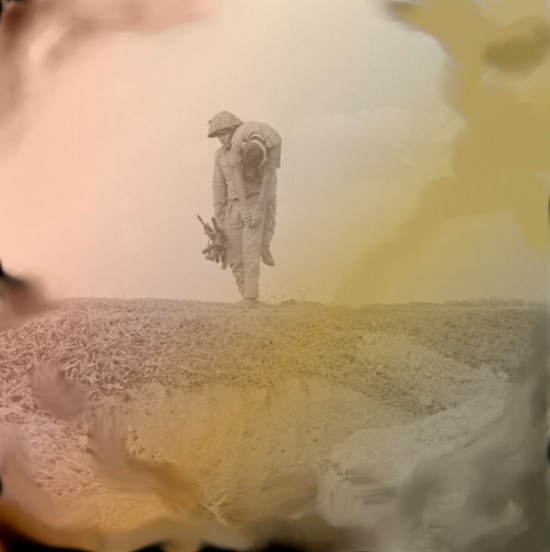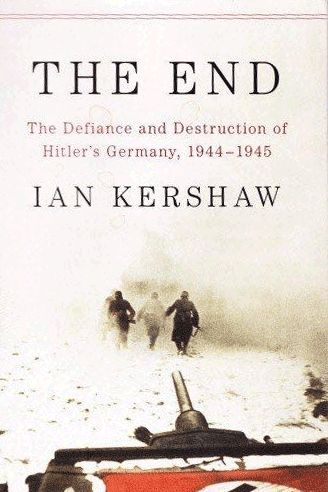
Strategist Dr. Harlan K. Ullman (best known for the concept of “Shock and Awe“) had a piece up at Atlantic Council about which I have a mix of opinions, so I am going to break it down with some excerpts and comment:
Needed Now: An Intellectual Revolution in Strategic Thinking
Toward the end of the Cold War, Soviet military thinkers coined the phrase “Military-Technical Revolution.” Based on a combination of extraordinary advances in precision strike and in information and surveillance technologies, the MTR was successfully transformed by the Pentagon into the “Revolution in Military Affairs.”
Meant to defeat the Red Army, the RMA was a real military revolution proven in the first Iraq War in 1991 when US arms pulverized Saddam Hussein’s army; in Afghanistan quickly routing the Taliban in 2001; and again smashing Iraq two years later.
There’s more than just a semantic difference here.
A “Military Revolution” is a rare thing in history, an epochal event, like the transformation of warfare in early modern Europe , which also dovetails with the Marxist-Leninist economic deterministic conception of what constituted a world-historical “revolutionary” event in Soviet ideology. A “Military-Technical Revolution” was a terminological effort by Soviet general officers to reduce the ideological scope of the event discussed away from a sphere predominantly governed by the supreme authority of the Party (and in practice then, by politburo ideologist, Mikhail Suslov, who was deeply suspicious of any kind of reform) to one that emphasized that radical changes in warfare originated in or would flow from purely technological innovations and could therefore be safely managed by military professionals without encroaching upon political matters. Self-interest and institutional interest of the Red Army general staff at work.
American defense intellectuals repackaged the Red Army’s “Military-Technical Revolution” as the “Revolution in Military Affairs” – a much narrower concept than “Military Revolution” yet broader, more flexible and open-ended than it’s Soviet parent. Eminent strategist and military historian Colin S. Gray described RMA thusly:
Military Revolutions are preceded, implemented, and succeeded by RMAs. RMA refers to a radical change in the character of war. The engines of such change include, but are by no means limited to, technological innovation. Scholars note that most historically plausible RMAs have not obviously been led by new technologies [1].
The American RMA unlike the Soviet version was more closely tied to the force-multiplying effects of the information revolution and Moore’s Law that was to reshape the global economy, and came to be shorthanded, under Rumsfeld, as “transformation“. However, like the Soviet MTR, RMA suited the growing fascination of American military officers with operational art as the acme of professional identity and a substitute for strategy and troublesome questions of policy and politics. While “transformation” was good for making the military more efficient at applying violence, the focus on technological magic in operations tended to anesthetize senior generals from the need to attend to the vital strategic-policy dimension of war.
Back to Ullman:
….Today, American and certain allied militaries are exhausted by a decade of war. All face large and looming defense cuts meaning far less money for defense. Under these circumstances, readiness and morale become early casualties.
With the exception of North Korea (or to some states in Europe, Russia), few hostile armies are around to fight in a conventional conflict making the case for defense more diaphanous. The wars in Iraq and Afghanistan demonstrated that while military force may have been necessary, it could not make either country more governable, hardly the best argument for defense spending.
The omission of China is simply weird. I am neither a ‘Panda hugger” or a “Panda mugger” and I don’t think China should be shoehorned into the role of near-peer competitor, which it is not yet, except in the fantasies of hypernationalistic Chinese and maybe blogger/salesmen from the Lexington Institute. But how do you ignore a nation like China and the PLA in in a military-geopolitical strategic analysis?
….How can militaries deal with these facts of life? The answer is that a new revolution is desperately needed. Given the bleak funding outlook, this revolution can only be accomplished through intellect and rejuvenating strategic thinking.
British Gen. Rupert Smith’s “The Utility of Force” skillfully interpreted war in the 21st century to be about and over people — to protect and defend them or to defeat or disrupt them rather than as modern armies squaring off against one and other.
Many assumptions to unpack from few words.
I welcome Dr. Ullman’s call for an intellectual renaissance in strategic thinking which, if badly needed among the professional military class, is even more urgently required in our political class who – with some exceptions – were largely AWOL from their responsibilities of senior partnership in fashioning strategy and grand strategy with the uniformed military in the past ten years. Perhaps in a generation or two, the proliferation of grand strategy programs at elite universities that are increasingly feared by anti-American intellectual leftists, will produce a large cadre of statesman with real strategic competence.
Regarding the second paragraph, while I am sympathetic to the assumptions that 4GW environments will increase with the erosion of state sovereignty and legitimacy, the future of warfare may very well be extremely “hybrid” with well-financed polities, corporations and networks fielding impressively high tech military capabilities alongside atavistic and disorganized insurgencies wallowing in blood and entrails. The latter will invite intrusion by the former and the former are sometimes going to clash with one another, as well as against postmodern warlords, superempowered individuals, urban guerrillas and networked jihadis.
….Some 15 years earlier, the concept of “shock and awe” was created in which the goal was to affect, influence and ultimately control the will and perception of an adversary (hence Smith’s “people”) with the use or threat of military force. “Shock and awe” was inspired by the Chinese philosopher Sun Tzu eons ago when he wrote that the really brilliant general wins without having to fight a battle.
Shock and awe posited four criteria: control of the environment, rapidity, (near) perfect knowledge and brilliance in execution.
The last two, combined with the realities and uncertainties of today’s international environment, form the foundations for this much needed intellectual revolution in strategic thinking.
If so, then the revolution fizzles out here.
Rapidity and brilliance in execution – or at least excellence – can be trained for, but in control of the environment, the enemy gets a vote (and so, for that matter, does the environment) and “(near) perfect knowledge” is a transient comparative advantage held (if at all) during the initial moments of a complete surprise attack. While it would be nice to have, “(near) perfect knowledge” cannot be a foundation for a strategic revolution as it is a largely unachievable standard in unhurried conditions of perfect peace, much less during the fog and friction of war.
….No one can be certain about the nature of future conflicts as the requirements for defense, once equated in largely military terms, have expanded to cover security with a far broader aperture extending well beyond armies, navies and air forces.
In future conflict, military force may or may not be necessary. But they have not been sufficient to achieve the strategic and political aims of bringing stability and security to Iraq, Afghanistan and so far Libya for example.
Further, given defense cuts, preparations for major conventional operations will be severely curtailed as both weapons and systems for those engagements as well as training will likewise be reduced, possibly dramatically. The strategic question that forms the heart of an intellectual revolution rests on how militaries can prepare for a future so filled with uncertainty while preserving traditional war fighting skills with far less money.
Ullman is correct that public expectations of “security” have expanded beyond military strength to encompass more of the DIME spectrum with, arguably, law enforcement, immigration/assimilation and cyber issues as well.
Disagree that the current political class dominated by aging Boomer fantasists will recognize that sharply curtailed military budgets mean fewer operations.It certainly has not worked that way in Britain where harshly punitive budgetary cuts to the British Army and Royal Navy have scarcely curbed Her Majesty’s government’s appetite for military intervention. American politicians and Atrocity Boards will simply require the Pentagon eat it’s seed corn to pay for intervention piled upon intervention and when that runs dry, Congress will look at cutting veteran health benefits and pensions and hollow out the force until it breaks.
….First, militaries and strategic thinking must be oriented about obtaining (near) perfect knowledge not merely about traditional operations and employing weapons systems with far greater creativity. There must be far more learning about other, non-military tools and other regions and states round the world of import or interest to assuring national security.
The part about creativity is spot on, but in a military where majors, colonels and brigadier generals feel they cannot sign off on something as mundane as a platoon, a company or a battalion using ATVs on patrol in Afghanistan without risking their careers, then bureaucratic micromanagement has already reached the state of military rigor mortis. Strategic thinking in the ranks cannot begin until the climate of fear is removed and the incentives for promotion changed to reward risk-taking. Just like the State Department, the Pentagon’s antiquated personnel system is out of alignment with the needs of American national security and represents a systemic bulwark against positive change.
Pursuit of near perfect knowledge should be dropped. When Admiral Art Cebrowski helped conceive of network-centric warfare, there was an opportunity present, through real-time sharing of information across a military “system”, to maximize individual and unit initiative within their understanding of the commander’s intent and accelerate the operational tempo vis-a-vis the enemy. Instead, information technology, as I see it imperfectly from my far remove as a civilian kibbitzer, has empowered micromanagement with three and four star generals playing company commander, colonels playing squad leader and lawyers and powerpoint-inebriated staff officers hundreds of miles away blocking artillery or air support requested by units under fire.
Perfect knowledge as a doctrinal benchmark encourages organizational paralysis in the face of uncertainty, rather than the fluidity, creativity and adaptiveness that Ullman seeks.
….Second, new means and methods must be created or strengthened that contribute to maintaining fighting skills that enable brilliance in operations. For example, as the British navy and air force lose both carrier and anti-submarine capacities for an interim period, units should be assigned to the US or French navies that will employ these weapons systems. The British army could deploy units to serve in Korea or Pakistan and India where conventional combat is central to those forces to maintain these skills. And new generations of war games and simulators must be invented and fielded so that many scenarios can be played out to keep skills at acceptable levels of readiness.
These are useful ideas, especially the wargames. I don’t think the British will bite though, except for “model” partnerships with the French. There’s really no good reason why there should not be an “Anglospheric” (UK, US, ANZUS, Canada) combined naval warfare planning staff and regular joint exercises.
….Third, to achieve these aims, a further revolution in military education from bottom to top is essential. Officers and troops must be prepared intellectually in order to obtain near perfect knowledge about a future that at best is opaque. And simultaneously, keeping combat skills sharp in an era of austerity when weapons and training will be in shorter supply is best done as Bobby Jones, perhaps the greatest golfer ever observed about that game — it is played in the 6-inch space between the ears!
Militaries will be reluctant to accept new or any revolutions when they are fighting for subsistence. Politicians find governing hard enough. And few are prepared to impose a revolution let alone make tough decisions.
If an intellectual revolution is to be wrought, it must come from within. But who will listen? And who will lead?
As of now, no one is leading and few understand the need to do so.
1. Colin S. Gray. Another Bloody Century. Orion Books Ltd. London. 2005. 117..








